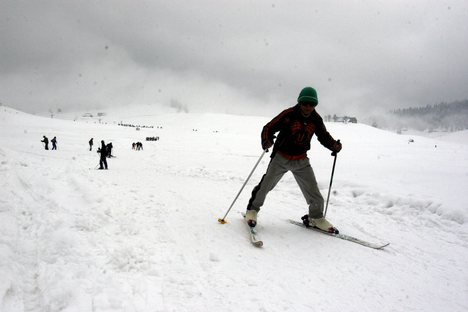In the course of recent years, Pakistan has seen a few progressions in its human services and medical structure. Some of these progressions can be reflected in the nature of hospitals that convey an exclusive requirement of medical care through its inventive frameworks and systems.
If you have no idea which government hospital is giving best of its facilities so you must take a look at this. We have shortlisted some of the best government hospitals in Pakistan.
1) Pakistan Institute Of Medical Sciences (PIMS), Islamabad:
This research-oriented health sciences institute is one of the area’s leading tertiary level hospitals which incorporates 22 therapeutic and surgical specialist centers. Situated in Islamabad, Pakistan, this government hospital is a 592-bed hospital spread more than 3.5 hectares.
2) Jinnah Hospital, Lahore:
Jinnah Hospital Lahore has included another 100 bed Accident and Emergency Department in 2005 and the number of patients expanded from 500,000 in 2003 to 700,000 in 2007.
The Jinnah hospital has done exceptional advancement and this is contributed to the cooperative and caring staff and a regular visit of specialists and medical attendants to give exact treatment on time. To book appointments with the best general physicians in Lahore and other main cities of Pakistan visit marham.pk.
3) Services Hospital, Lahore:
The hospital is giving quality treatment to patients in the emergency department for which staff is prepared to deal emergency patients and catastrophe casualties.
4) Lady Reading Hospital, Peshawar:
A 200-bed hospital is believed to deal 2500 patients per day and the casualty cases at the accidents and emergency division number more than 1500 or 1800 every day, according to a report of 2008. Lady Reading Hospital Peshawar is a surprisingly beneficial development for poor and working-class individuals for giving therapeutic, surgical, ENT, and T.B. wards.
5) Sindh Institute Of Urology And Transplantation, Karachi:
This centrally located hospital of Karachi is listed among the best government hospitals in the world. The hospital is Pakistan’s biggest kidney ailment center that gives free medical treatment to patients from the rustic and poorer urban strata. The hospital is known for crisis unit, effective labs, radiology department and convenient treatment of patients with no separation of poor and rich. You can visit marham.pk to book appointments with the Best Nephrologists In Karachi and other cities of Pakistan.
6) Civil Hospital Karachi:
It is one of the best hospitals in Karachi that has not disappointed in its capacity to inspire visitors and cure the individuals who experience the ill effects of a wide range of diseases, by giving best in class present-day modern equipment and treatment strategies to its patients.
7) Punjab Institute Of Cardiology:
Treatment provided by PIC is absolutely free of cost for poor and entitled patients whereas the private patients are dealt with at a much lower cost than rest of the private hospitals. Emergency service is open 24 hours and crisis treatment is thoroughly free for everybody irrespective of their social standing.
8) Lady Aitchison Hospital:
Lady Aitchison Hospital is situated in Lahore and providing adequate health facilities to the patients.
10) Federal Government Service Hospital:
Also known as Poly Clinic is one of the leading hospitals with 1100 bedded facility in Islamabad. This government hospital is dedicated to providing the high-quality medical care and facilities to the patients.
11) Children’s Hospital, Lahore:
When it comes to the health and care of children. Children’s Hospital Lahore is the best option. This government hospital is dedicated to providing best health facilities with the help of their trained and caring staff.
Offering remarkable services and the most progressive medical facilities, these hospitals are some of the best in Pakistan. Now and again these hospitals are preferred by the general population over private hospitals as they are economical, equipped with most recent machinery and profoundly qualified specialists, proficient staff and quality medicines.
You can also find the best hospitals in other cities of Pakistan.
Find Best Hospitals in Lahore
Find Best Hospitals in Karachi
Find Best Hospitals in Islamabad
Find Best Hospitals in Rawalpindi
Find Best Hospitals in Multan
Find Best Hospitals in Bahawalpur
Find Best Hospitals in Faisalabad
Find Best Hospitals in Abbottabad
Find Best Hospitals in Peshawar
Find Best Hospitals in Quetta
